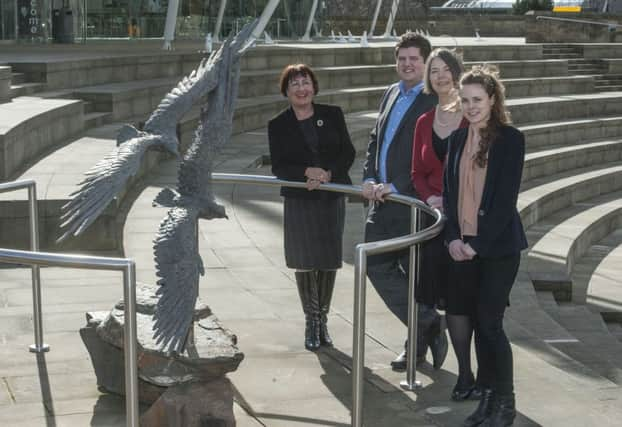Students really can make a big difference


Social innovation, recognition of ideas that work for the public good, is capturing the imagination of people like never before. Coming from individuals, groups and organisations, it can take place in the for-profit, nonprofit and public sectors. Increasingly, social innovation is happening in the spaces between these three sectors as perspectives collide to spark new ways of thinking.
The results of social innovation are all around us with universities being a real hotbed of interest. Speak to staff and students across Scotland’s higher education landscape and you’ll find that the majority have a burning desire to do social good, improve life in their communities and the environment around them.
Advertisement
Hide AdAdvertisement
Hide AdHarvesting this enthusiasm, The Scottish Institute for Enterprise hosts The Young Innovators Challenge – a competition where students can make a real difference to Scotland and develop skills that will help them start up a business. Within Converge Challenge, too, approximately a third of projects are looking to do social good whether through a completely commercial venture or by setting up a social enterprise. They range from idea of bringing art into the life of every family in Scotland, to cutting edge diagnostic techniques for mental health disorders.
Take, as an example, Safespot which was one of two winners in the Converge Challenge Social Enterprise in 2014. Its initial idea was to create a mobile phone app to provide young people with advice on mental health issues. In addition, the app will enable young people to develop a personal mental health safety plan to lower the risk of self-harm and provide a practical, confidential tool to help them get better. It uses mobile phone technology to incorporate mental wellbeing and positive safety planning into each child’s mobile device, iPad and laptop.
This project is a good example of how social enterprises can make use of innovative technology and methods of delivery to provide solutions to particular issues. The company launched the app early in 2015, and has gone on to win investment of £10,000 from the Scottish Edge to further develop its product.
Last month, E-Finger, a diagnostic tool which aids screening and diagnosis of prostate cancer won the Converge Challenge Elevator Pitch and this is yet another fine example of an idea with exceptional commercial potential, but the key driver is the ability to develop a tool which can save lives.
These modern entrepreneurs are future visionaries that set up a company with a clear plan to play a role in shaping and enhancing the world in some way. This is true innovation in every sense where transforming lives is more important than financial reward or gain.
The role of support organisations like Converge Challenge, RSE Enterprise Fellowship and many others is to teach our participants that in order to deliver their social missions they need to build profitable businesses that generate income and deliver products and services that will break into the international markets. Being an entrepreneur is not just about money but the wider mission of making this world a better place to live in.
Even the younger demographic is fast becoming socially aware. Last year, Demos, Britain’s leading cross-party think-tank, produced a report called Generation Change. It took a detailed look at young people between the ages of 14 and 17, to determine what we can learn about the next generation to come.
It stated that the headlines are often dominated by news that a difficult future lies ahead for the next generation – a future clouded by a competitive and fast-changing labour market, increasing housing and education costs.
Advertisement
Hide AdAdvertisement
Hide AdYet, the research suggests that many young people are having a positive impact through social enterprise and volunteering. Teachers describe them as “caring”, “enthusiastic” and “hard-working” and believe that teenagers today are more likely to volunteer for good causes and set up their own group, movement or socially motivated project than previous generations.
There is no hard and fast rule, that making money is the most important issue to them.
The report calls on policy makers to recognise these new forms of activism and engagement and from this, we are all getting a better understanding that social innovation is the best construct for understanding and producing, lasting social change.
The world around us is a better place for the advancement of social innovation.
• Olga Kozlova is director of Converge Challenge
SEE ALSO